Discover The Dingle Way
-
Sustainable Travel along the Dingle Way
Renowned for its spectacular wild and rugged landscapes, the Dingle Peninsula also lays claim to a rich cultural heritage with an ancient ruins and language, welcoming residents, longstanding traditions, and outstanding food. Residents and members of Dingle Peninsula Tourism Alliance have recognized their responsibility to keep the area protected, to allow future generations to enjoy it as much as we do today.
Here are some simple ways to contribute during your visit!
Say “NO” to plastic – a great way of doing this is limiting the use of straws, plastic drinking bottles, plastic coffee cups and plastic bags.
Leave no trace – carry your personal waste such as wrappers from snacks and other items and avoid littering along the route.
Stay local, shop local – Support the local communities by eating and shopping locally!
Let nature's sounds prevail – enjoy your experience, keep your noise to a minimum and respect farm animals and wildlife around you (with the added bonus of a higher chance of finding them!)
Leave what you find – Don’t take home rocks, plants or flowers as souvenirs as some of these can be valuable for the natural habitats.
Curious to know more? Read Our Sustainable Travel Journey.
![Sustainable Travel along the Dingle Way]()
-
Gaeltacht and the local lingo
The Dingle Peninsula is one of the main "Gaeltacht" areas of the Emerald Isle, where the Irish language (Gaelic) is widely spoken at home, in schools and even the workplace. Due to its remote location, it was removed from the influences of the modern world for a long time and the local language and traditions have largely remained intact. Staying in "Gaeltacht" villages means you get to really immerse yourself in the Irish cultural heritage.
You can be sure to come across the Gaelic symbols during your Dingle Way adventure - road signs, names, descriptions and even menu items! Learning a few phrases will help you to get a deeper understanding of the people of this beautiful part of the world.
Here are a few sentences to practice:
Good morning - "Maidin Mhaith" (pronounced: mod-jin wot)
Cheers - "Slainte" (pronounced: slawn-cheh)
I speak only a little Irish - "Níl agam ach beagáinín Gaeilge" (pronounced: kneel ah-gum ock byug-aneen gayle-geh)
Thank you - "Tapadh leat" (pronounced: tapah lat)
The weather is beautiful today - "Ta an aimsir go halainn inniu" (pronounced: taw an eyeim-shur guh haul-inn inn-you)
![Gaeltacht and the local lingo]()
-
Dingle Peninsula & Hollywood Actors
With a landscape as rugged and wild as the Dingle Peninsula, it comes as no surprise that it has attracted famous film producers, some of these include Star Wars, Ryan’s Daughter, Far & Away, and Playboy of the Western World.
Some, but not all, of the prime filming locations were…
Beaches – Inch Beach is one of the most popular beaches, with a long golden stretch of sand and windswept dunes stretching out into Dingle Bay. Another great spot is the beautifully shaped Ventry Beach, near the Gaeltacht village of Ventry. And finally, Coumeenole Beach, offering dramatic scenery used as a filming location of Ryan’s Daughter.
Slea Head – From the tip of Slea Head you can enjoy far-reaching views to the Blasket Islands and Dunmore Head on the mainland – a Star Wars film location. The coastline made the ideal hiding place for Luke Skywalker’s X-wing.
Castles & Ruins – The ruins of Minard Castle are positioned on a hill, overlooking a small bay with views across the Irish Sea. It was once the stronghold for the Knights of Kerry before it was attacked by the English army in 1650. The ruin is seen in Ryan's Daughter, where the Major and Rose meet.
‘Clocháns’ – These drystone Beehive Huts have been built by the monks on Skellig Michael over many centuries using the ancient method of Corbelling. This style of building dates back to the Neolithic Period. In the Star Wars film 'The Last Jedi' the 'clocháns' were the ancient Jedi shelters where Luke Skywalker resided.
![Dingle Peninsula & Hollywood Actors]()















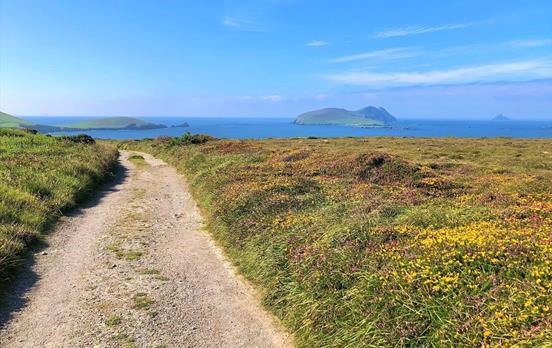
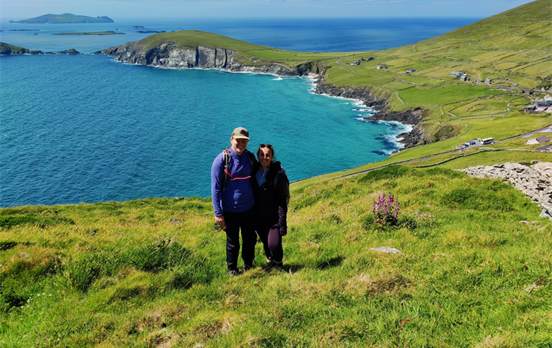
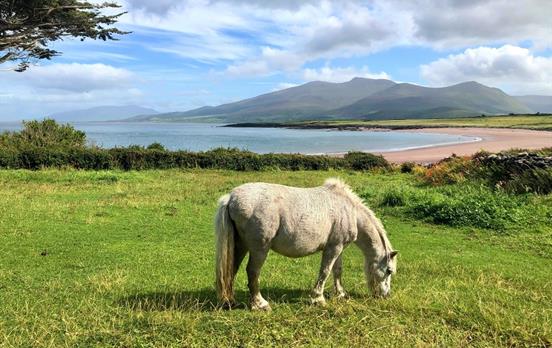
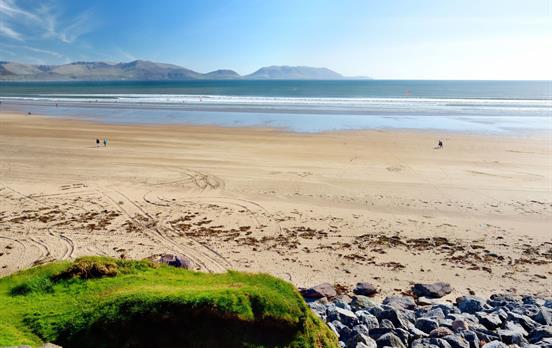
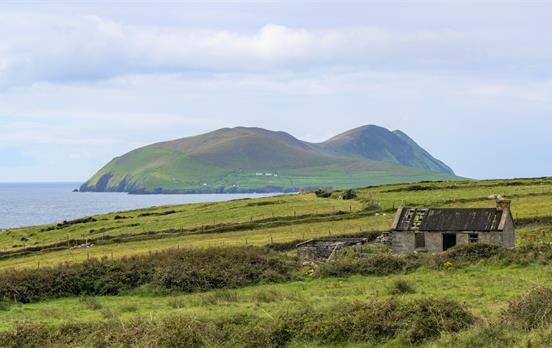
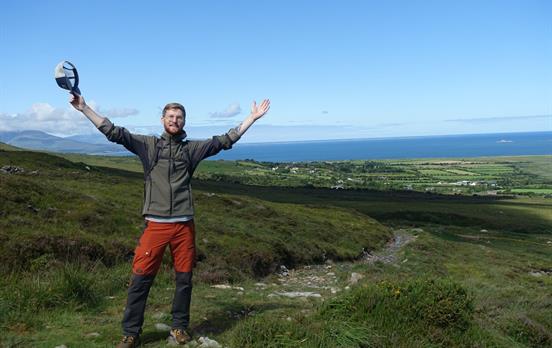
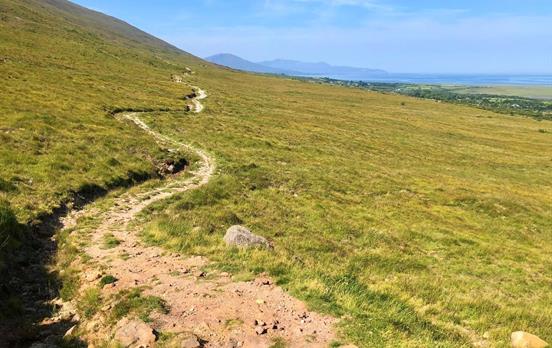
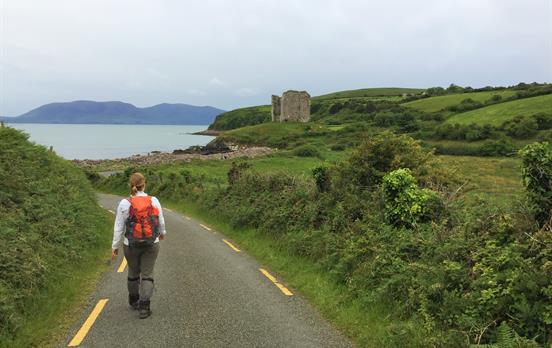
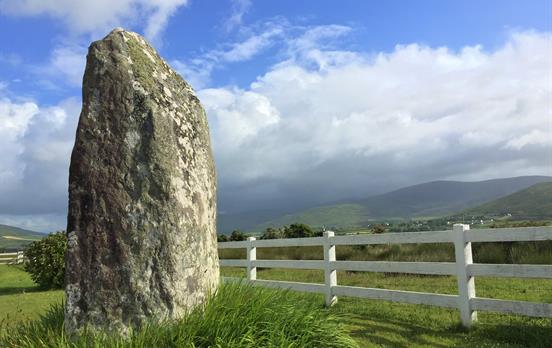


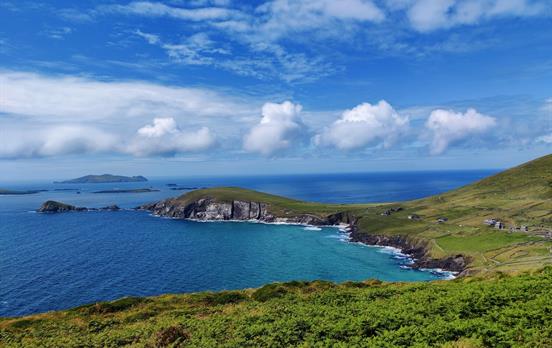

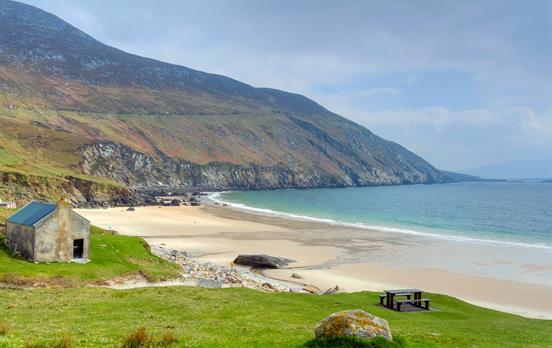
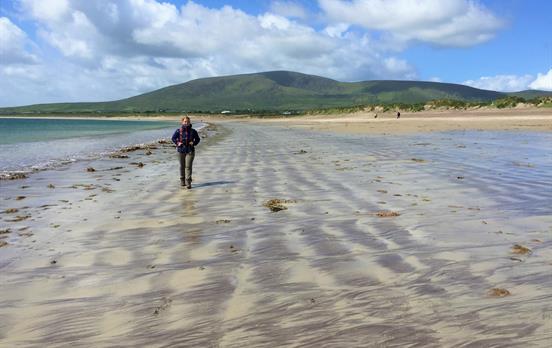
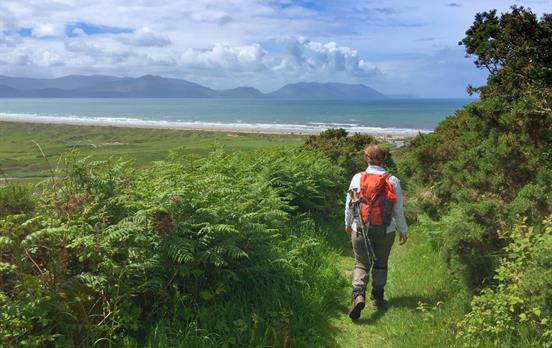
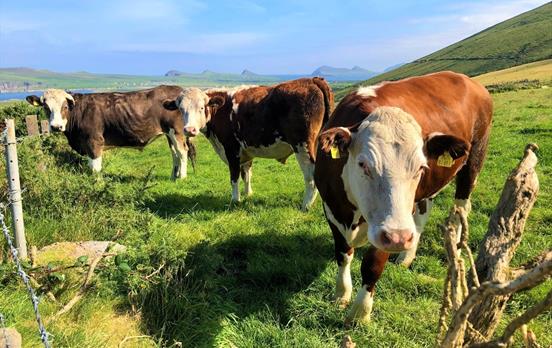

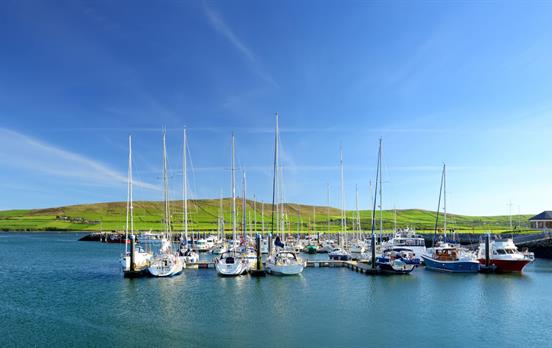
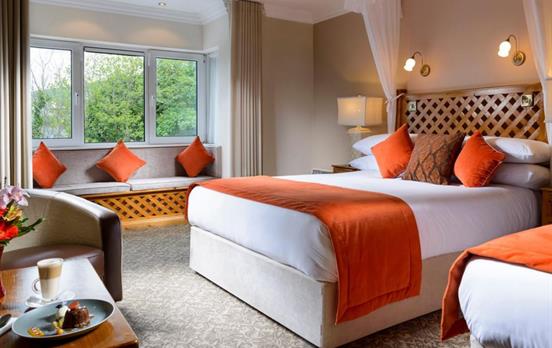
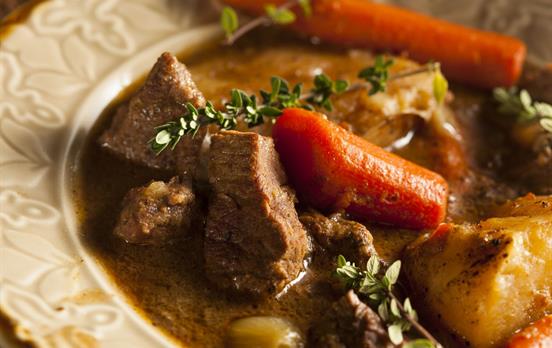
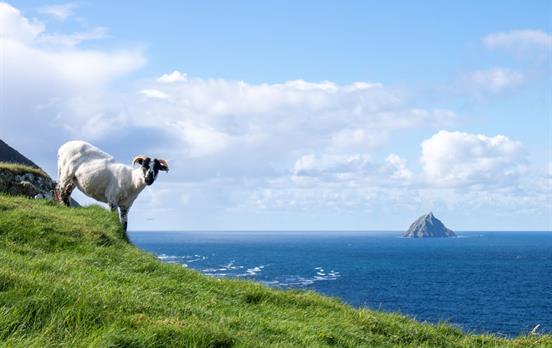
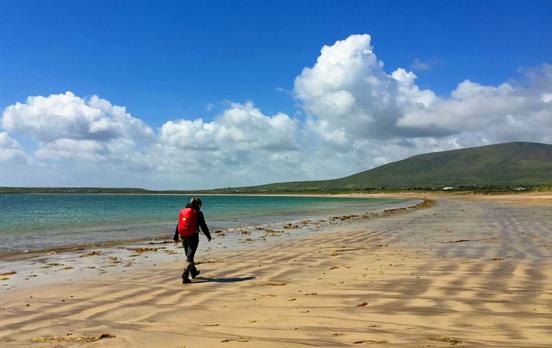
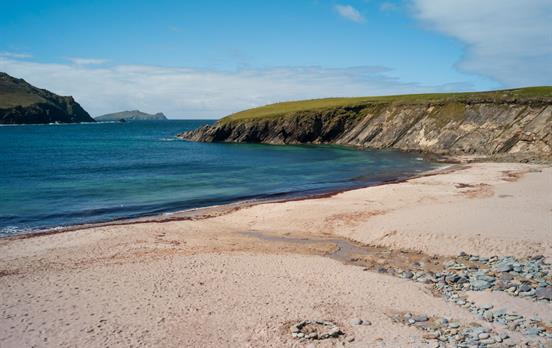
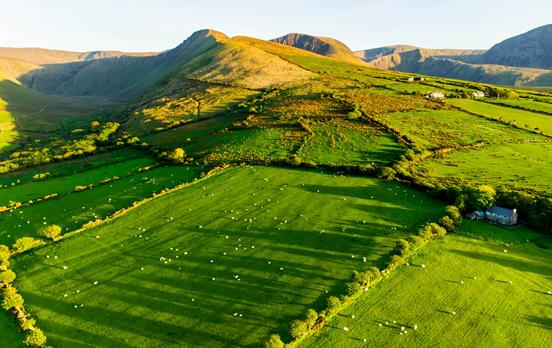
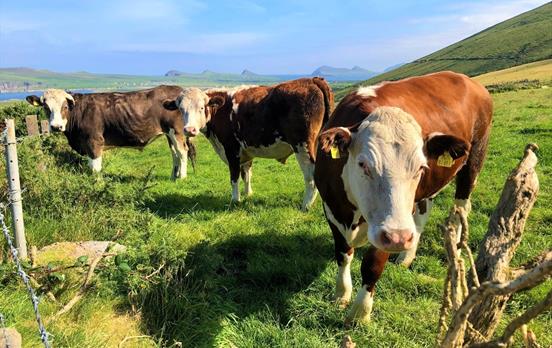
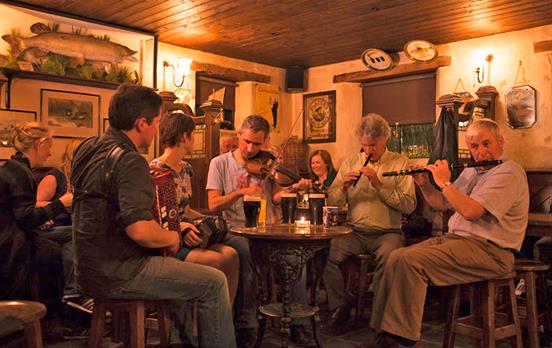


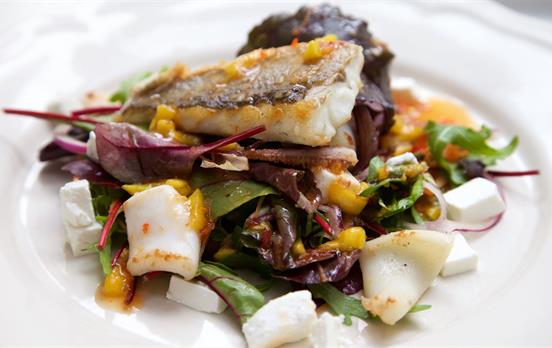
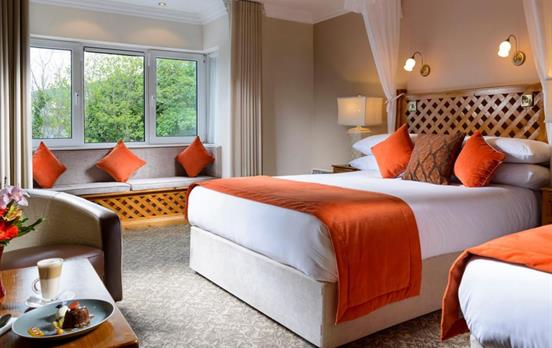
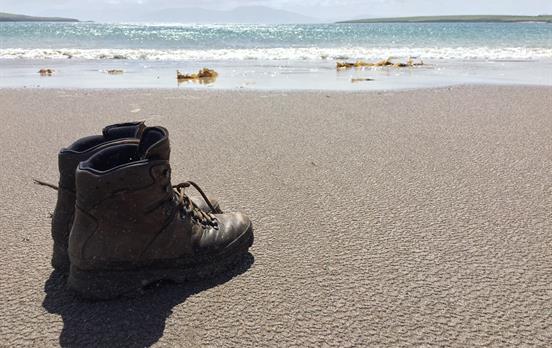
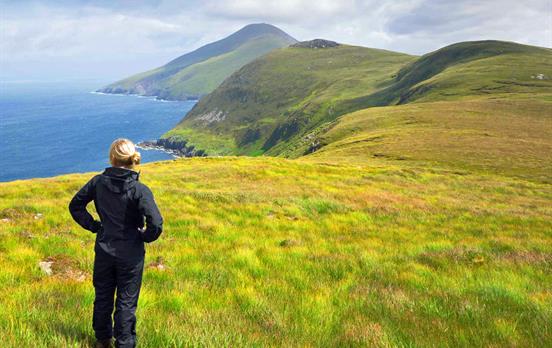
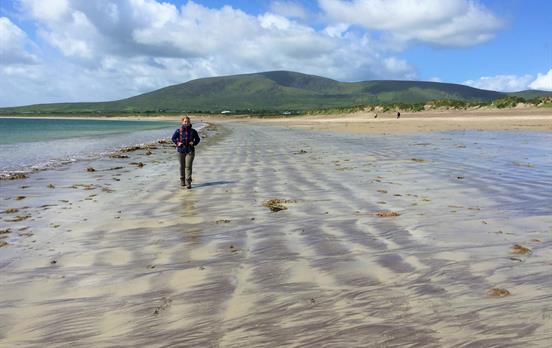













 Canada
Canada